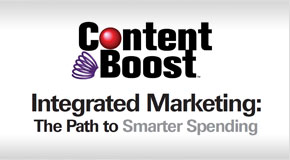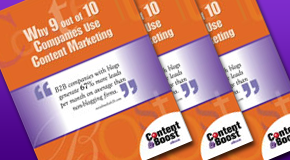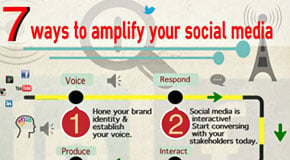As human beings, we are social creatures motivated by psychological factors that we may or may not understand. This can be especially true when it comes to content marketing where influencing your customers’ purchasing habits depends greatly on how you reach them emotionally.
In most modern societies, people are highly aspirational, meaning they have a fine-tuned sense of the life they want for themselves and the things they desire; therefore, when it comes to content marketing it’s important not only to stimulate people to buy simply basic necessities, but also those things that they believe will add value to their lives.

So how does psychology factor into content marketing and how can we maximize its potential to drive sales?
Affinity
Consumers want to feel that they are valued by their brands. For example, if you shop at the GAP, you need to feel that the brand understands your style and wants to meet your needs. Many companies often appear cold and distant because they don’t have a strong understanding of who their customers are. Many well-known brands, like Abercrombie & Fitch for example, have suffered significant losses in recent years because they assumed everyone would adapt to their image of perfection rather offering accessible and varied clothing options. Therefore, it’s no surprise that the brand has recently been voted the second most hated brand in America after McDonald’s.
Trust
It’s not enough for consumers to like a brand; they must also trust it. This means consumers have to know a brand has the esteem of their peers. Microsoft, for example, has become synonymous with value. People may have varying degrees of reactions to the changes in its operating systems but most simply believe it’s an integral part of any computer. After all, how many people do you know that still use WordPerfect rather than Microsoft Word? Microsoft has also optimized its content marketing through storytelling by intertwining technology with human interest pieces, as is the case of NFL player Steve Gleason, who is battling ALS with cutting-edge Microsoft technology such as Ability Eye Gaze, which uses Surface Pro to speak with the help of eye-tracking technology from Tobii.
Compassion
Consumers want to believe their brands care about more than just their bottom lines. The classic example is Paul Newman’s ‘Newman’s Own’ brand, a food company founded by actor Paul Newman and author A.E. Hotchner in 1982. The company donates 100% of the after-tax profits from the sale of its products to Newman's Own Foundation, which supports various educational and altruistic organizations and has given over $400 million to charitable causes since its founding. The company has kept its marketing strategy consistent for the past 33 years, which has helped it achieve soaring heights in the highly competitive food industry.
In the end, the relationship between a brands and its customers must be one of mutual respect. The message of its content therefore has to reflect a connection to the customer that surpasses the boundaries of the material and touches the heart.















